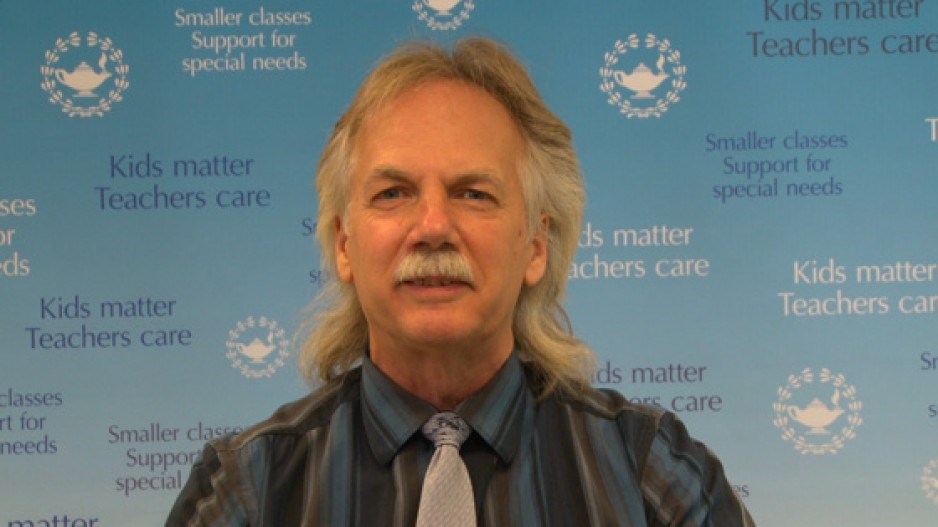Students and parents will have to endure limited job action from teachers starting April 23, the British Columbia Teachers' Federation (BCTF) announced April 23.
BCTF president Jiim Iker announced April 17 that the first stage of job action will target administrative duties.
During this stage of job action teachers will not:
•supervise students outside of regularly scheduled classes, except as set out by an essential services order;
•attend any meetings with management other than meetings of the worksite joint health and safety committee;
•provide principals or administrators with any routine printed, written, or electronic communication;
•receive any printed, written, or electronic communication from an administrator; nor
•be at a worksite prior to one hour before commencement of instructional time and one hour after the end of instructional time, other than for pre-arranged voluntary activities.
The province's 41,000 teachers have been without a contract since June 2013. Outstanding issues include wages, class sizes and class composition.
Iker chalked up the job action to lack of progress with the B.C. government at the negotiating table.
"Despite our patience and our measured approach in bargaining, [Premier] Christy Clark and her government are once again trying to provoke BC teachers and shut down BC schools," said Iker.
"Job action, even low-level action, is always a last resort because teachers care deeply about our schools and our students."
The BCTF held a strike vote earlier this year and, on March 6, the union revealed that 26,051 of 29,301 teachers, or 89%, had voted in favour of striking.
“It's a little disappointing but not at all surprising,” said Education Minister Peter Fassbender said in an April 17 response to the job action.
“Over the past few weeks, it appears the BCTF has been more focused on implementing its strike plan than bargaining at the table. There has been virtually no movement from the BCTF on their wage and contract positions. The union hasn't moved off its opening position of approximately 13.5% increase over three years, nor has it withdrawn any of its many other monetary proposals.”




